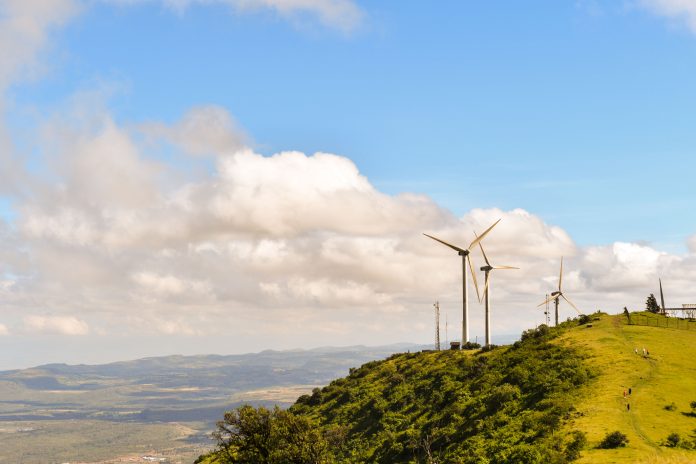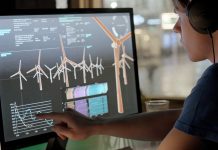The U.S. Department of Energy (DOE) has launched the Regional Energy Democracy Initiative (REDI) Consortium to help encourage collaboration between stakeholders and communities in Texas and Louisiana
The new programme has $5 million in investments and will make sure that clean energy projects are providing direct, lasting benefits to local communities while also reducing carbon emissions.
REDI shows the Biden-Harris administration’s commitment to ensuring that the energy transition is inclusive and beneficial for all.
The vision behind REDI
REDI’s main goal is to create a more equitable energy future by involving local communities in the planning and execution of significant energy infrastructure projects.
As Texas and Louisiana are expected to receive over $8 billion in federal funding for clean energy and carbon reduction projects, the initiative shows community engagement and collaboration to ensure these investments meet local needs.
By allowing communities to play an active role in decision-making, REDI hopes to align energy projects’ economic and social impacts with the priorities of those most affected by the transition.
The program promotes the idea of energy democracy, the belief that communities should have a voice in shaping the energy systems that directly affect their lives. REDI will ensure that these communities have the resources, knowledge, and support needed to influence the siting, permitting, and implementation of energy projects, ultimately improving energy security, affordability, and resilience in the region.
Key Goals
The three key goals are building capacity, minimising risks and creating jobs.
The REDI initiative is designed to address several key challenges that have historically hindered equitable participation in energy transitions.
First, it aims to minimise risks associated with clean energy projects by encouraging early and ongoing engagement between developers and local stakeholders. By ensuring that community input is integrated from the outset, REDI will help avoid potential conflicts and ensure that projects align with community priorities.
Second, the program focuses on building local capacity by providing technical assistance and workforce development. REDI looks to enhance the skills of local workers, particularly those from underrepresented communities, allowing them to access new opportunities in the growing clean energy sector.
Through strategic investments in education and training, REDI hopes to support career development and job creation, helping to close the employment gap in energy industries.
Finally, REDI aims to provide long-term economic benefits for local communities. Alongside job creation, this includes the development of new businesses, improved infrastructure, and stronger economic resilience in the face of future energy transitions.
Nine organisations driving change
The success of REDI depends on the collaboration of nine carefully selected organisations that will lead the effort in Texas and Louisiana.
These organisations bring experience in community engagement, economic development, and clean energy implementation. Together, they will ensure that the goals of REDI are met through coordinated efforts and shared expertise.
- Southern University and Agricultural Mechanical College will lead the initiative, supporting consortium activities and developing a regional benefits strategy.
- The Gulf States Renewable Industries Association and The Louisiana Chamber of Commerce Foundationwill focus on economic development, providing technical assistance and identifying funding opportunities for community-driven projects.
- The Texas Climate Jobs Project will spearhead workforce development, creating strategies to support local workers and promote labor equity in the clean energy sector.
- Air Alliance Houston, Micah Six Eight Mission, and Power Coalition for Equity and Justice will provide essential technical assistance, conducting stakeholder engagement and supporting local non-profits in project implementation.
- Integrated Minority Aids Network Inc. will offer legal support, helping communities navigate agreements related to community benefits and workforce development.
A legal framework for community benefits
Essential to the REDI initiative is securing community benefits through legally binding agreements.
The Integrated Minority Aids Network Inc. will be crucial in advising communities and organisations on community benefits agreements, ensuring that projects deliver real benefits such as local job creation, infrastructure improvements, and increased energy access.
This legal framework is designed to protect the interests of communities and ensure that the clean energy transition delivers lasting value.
The role of ENERGYWERX
The REDI initiative is managed by ENERGYWERX, in collaboration with the DOE, under a Partnership Intermediary Agreement.
Through this agreement, ENERGYWERX is able to engage a broad network of non-traditional partners, accelerating the development and deployment of clean energy solutions.
By using innovative partnerships, REDI is set to scale up the clean energy transition quickly.
REDI represents a significant step toward a more inclusive, resilient, and sustainable energy future in Texas and Louisiana. By ensuring that communities developing thier energy infrastructure, REDI is setting a precedent for how large-scale energy projects should be developed—collaboratively, equitably, and with a focus on long-term community benefits.
As the clean energy transition continues, initiatives like REDI will be key to ensuring that all Americans, especially those in historically marginalised communities, can benefit from the promise of a cleaner, more secure, and affordable energy future.











